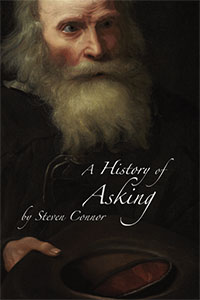This is an 'author's cut' of the fifith section of 'Defund Culture'. The first section, titled 'The Culture War and the Attack on the Arts', is available here. The second, 'Culture Must Be Defunded' is here. The third, 'The Ruin of Culture', here. The fourth, 'Culture and the University as White, Male, LIBERAL HUMANIST, Public Space', is here. Versions of the first three of these sections appeared in the Spring 2022 issue of the journal Radical Philosophy. The rest I'm making available for the first time here.)
---
In this context Eddo-Lodge is far more radical than her popular status would suggest, for all some have found Why I’m No Longer Talking to White People About Race confrontational, even controversial. Those who read her book (rather than merely reacting to its title) will find passages such as the following: ‘After a lifetime of embodying difference, I have no desire to be equal. I want to deconstruct the structural power of a system that marked me out as different. I don't wish to be assimilated into the status quo’. For many of my collaborators and I, this deconstruction of structural power must include the persistent mechanisms and habits of mind that legacy theorists – including Latour, Escobar and even Ahmed – continue to conform to when they write and present their books as if they are the personal expressions of an autonomous named individual; one who lives and works in isolation from all human and nonhuman others, and who has the moral and legal right to be recognised as their original, sovereign, proprietorial authors. (And this is the case even though these legacy theorists may explicitly acknowledge in the content of their work that a given composition is, in Escobar 's words, an ‘emergent heterogenous assemblage’, and that ‘all creation is collective, emergent, and relational’.) They then hand their books over to reputable publishing firms (Duke, Stanford, MIT etc.). These firms turn them into commercial products in the form of materially conventional, fixed and finished volumes of long-form argument, that can be purchased at a price determined by the copyright and property regime presided over by late capitalism’s market logic. It’s a configuration of power that works to make sure a relatively small number of ambitious, high profile and well-resourced thinkers continue to have ideas, concepts, indeed whole philosophies and worldviews, attributed to them as theirs, as part of their unique intellectual trademarks. As Kevin Ochieng Okoth asks in an article on ‘Decolonialisation and Its Discontents’ with regard to the decolonial studies of Mignolo and others: ‘What are the implications for anti-imperialist struggle in the global South if those at the forefront of challenging the Eurocentricity of knowledge production are based in the resource-hoarding universities [and publishing houses, I would add] of the Global North (especially the US)? Is there not a danger of reproducing precisely the kind of epistemic coloniality from which we are trying to de-link?’
To listen to the arguments of Ahmed and Todd once more: what I’m doing in saying this is holding these theorists ‘up to the goals they define for themselves’. It’s the structures of culture and the university that stop them from realising many of their ‘most transformative’ ambitions, including exploding these structures, blowing them apart. The pre-formatted liberal humanist ‘dimensions of the academy itself prevent the reimagining’ of theory and scholarship. As the work of Ahmed and Todd bears witness, it’s hard to think of many academic theorists whose responses to the supremacy of white, male, liberal humanist culture that’s behind the marginalisation of people from working-class, Black, Global Majority and LGBTQIAP2S+ communities do not take the categories and frameworks of white, male, liberal humanism as their default starting point for doing so. This is because the de-liberalisation of theory cannot take place until theorists themselves are prepared to engage in the de-liberalisation process in a substantive, structural and physical way, and are willing to recognise that this liberal humanist space is an existing and continuous, if exhausted, reality.
This is what many of my collaborators and I are endeavouring to do: we’re testing some of the strange, new, unsettling – what, following Escobar, we might call non-universal, non-modernist, non-liberal humanist – modes of creating and sharing knowledge and theory that are now possible. As we’ll see over the course of what follows, norm-critical experimental publishing projects such as Open Humanities Press, Liquid and Living Books, Photomediations, Radical Open Access Collective, ScholarLed, COPIM, Combinatorial Books: Gathering Flowers and the How to Practise the Culture-led Re-Commoning of Cities are attempting to unsettle our accepted, common-sense, liberal humanist ideas of the autonomous subject, the individualistic human author, the unified, stable, fixed and finished book, originality, creativity and copyright. They are doing so by emphasizing instead a range of alternative, non-oppositionally different concepts and values, definitions and distinctions regarding the composition, production and circulation of contemporary theory and research (many of which we’ve learnt from theory). At the present time an incomplete list, which no one text or work could hope to enact in its entirety, includes:
- ontological relationality
- pluriversality (i.e, non-univcersal, non-modernist-liberal)
- intra-active collaboration – of humans and nonhumans
- co-constitution
- collectivity
- polyphony
- processuality
- performativity
- pre-figuration
- situatedness
- responsible openness
- the event (over the finished object or artefact)
- creativity as repetition, modulation, détournement, disappropriation, ‘piracy’
- remixing, reconfiguring, refashioning, reversioning, reframing
- making & unmaking
- learning & unlearning
As such our experimental projects are designed to help us engage in (and transition to) the de-liberal humanisation of our institutions, our culture, even our bodies and how we live and work together.
 Tuesday, September 19, 2023 at 12:52PM
Tuesday, September 19, 2023 at 12:52PM  Gary Hall | Comments Off |
Gary Hall | Comments Off | 






